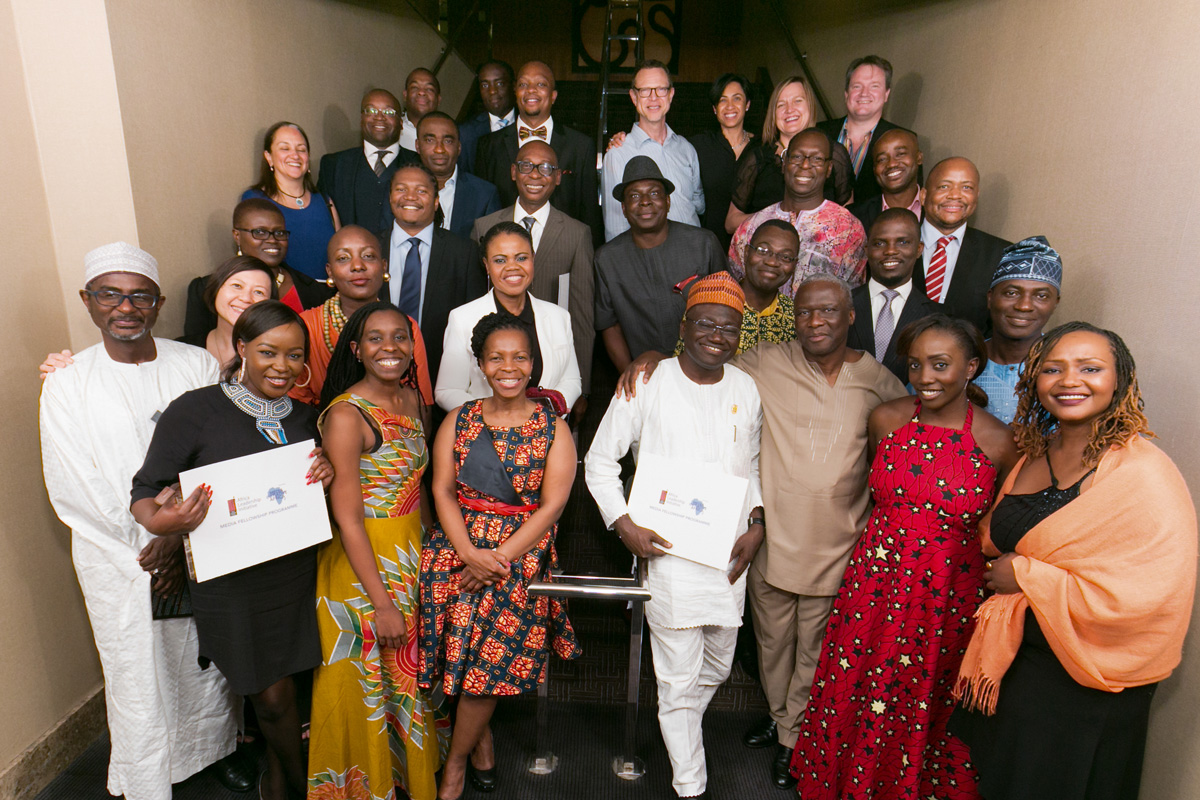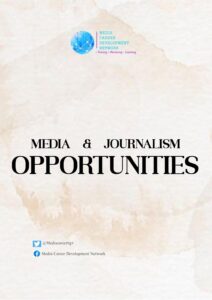Trevor Vusumuzi Ncube, Zimbabwean entrepreneur and newspaper publisher on the need to strengthen the continent’s financial media capacity.
Our profession on the continent suffers from a public trust deficit which we must attend to without further delay. And this is because of a combination of reasons. I will deal with the two most important namely;
We largely write for ourselves. We are distant and disconnected from the people. Our language is not theirs and the issues that we deal with are remote from their day to day problems. And the herd mentality means we all rush to the same peripheral issues which hardly touch the lives of the ordinary people in the slums of Kenya, Nigeria and South Africa.
Our challenge is to tell the business and financial story in a manner that will be easy to digest by both the investor and the Africa consumer. We identify and create opportunities for investors when we surface the basic day to day problems that the African consumer faces. Business makes money by addressing day to day human challenges.
The second issue is much graver. For society to take us seriously we must first take ourselves seriously. This means we must deal with the professional, ethical and leadership shortcomings in our midst. Politicians, business and the public don’t hold us in very high regard. Most of this is largely because of the way we conduct ourselves, the perception that we don’t read and research properly before we write and that brown-bag-journalism is still a factor on the continent.
I realize that there is a huge difference between perception and reality. But life has also taught me that perception is the reality that we must deal with. And in our case, the perception and the reality is that we are not very different from Sepp Blatters FIFA.
We live at a time when there has never been greater transparency, when companies and organizations are no longer able to resist public scrutiny, no matter how powerful they are. This new kind of transparency has been made possible thanks in large part to a new set of tools. These new tools and new technologies which on the face of it are stunningly simple because they are mostly powered by social sharing have created an unprecedented level of instant sharing of information that should be cherished by every journalist.
READ ALSO: ‘How to maximise learning opportunities, events in Africa’
You have no doubt experienced this phenomenon yourselves as the three countries on the continent with the most dynamic social media are precisely the three from which participants in the Africa Leadership Initiative are selected. Kenya, Nigeria and South Africa. If you sift through some of the naturally frivolous exchanges that are part of social media, you begin to grasp that many companies and organizations are being held to account via these platforms.
What’s more exciting is that it is no longer left just to journalists to ask the tough questions. There has been a democratization of scrutiny and it’s truly fascinating to watch an ordinary citizen take on a big institution and receive answers. The power of the RT and the hashtag on Twitter are the worst nightmares of an organization that wishes to hide something.
But there’s obviously something else at play and that is the availability of powerful analytical tools at the hands of journalists. The big data moment has arrived for any journalist that takes the time to master many of the tools that IBM, Google and others provide for free. It is my hope that your generation of journalists will harness the combined power of all these tools to strengthen the continent’s financial media capacity.
Armed with this kind of data and tools for accurate financial analysis, you will be the journalists at the forefront of delivering a new level of transparency in financial news. This is a vital pre-requisite for sustainable economic development. Without it, our economies will always perform far below their potential.
Let me congratulate those behind this important initiative. They are adding to the quality of professional capital that will drive our participation in the new economy. And given the rate of global innovation, we urgently need to invest in journalists that can hold their own in a world in which capital, rather than politics increasingly shape the global agenda. The African Media Initiative (AMI) shares your lofty goal of setting the standard and also the tone for in-depth analysis and coverage of business and economic growth. As we have seen over the past three years of Africa Rising, it is not possible to trumpet Africa’s economic renaissance if the citizens remain uninformed about financial matters.
As I’ve already said there is a direct link between the state of our democracy and the quality of financial journalism. It can no longer be that we have really sharp ‘political investigative journalists’ but second-rate financial journalists. Your role will not only be to promote transparency, accountability and governance, but to draw in the population to care far more about these financial matters that affect them so directly.
You will agree with me that too much is made of the link between formal politics and poor governance across the continent. But what is striking is just how little attention is paid to the role that poor financial governance plays in this scenario. It is a scandal that there is no real outcry when it is disclosed that over $50 billion has left the continent in illegal outflows. It is as if our population does not grasp the scale of this theft of their own resources and the direct link it has with poverty and poor infrastructure and no jobs. I do believe that if there is a dedicated pool of financial and economic journalists who zero in on financial corruption, there will be an increased sense of financial prudence.
We often say that there is nothing as powerful as an idea whose time has come, and I do have a sense that what your organization is attempting to do is not only timely, but it is important. That there is a clear confluence between the objectives of your organization and what these new tools promise and deliver makes this an important moment for financial journalism on the continent. If you and your colleagues get back to newsrooms in Lagos, Abuja, Nairobi, Johannesburg and Cape Town and you bring passion, flair and substance to your financial and business journalism, our people will sit up and take notice. Then no longer will they be disconnected when their town or city presents its budget, as they will now have the context of why these financial issues matter so directly to them.
Perhaps the real opportunity for you as professionals is that just as in the 60s when Africa was democratizing quickly, right now there’s a similar advance in economic terms. The continent has some of the world’s fastest economies and it can no longer be left to the foreign media to send in their journalists to give both the world and Africans an in-depth sense of how our economies are shaping up. We need our own journalists, familiar with the markets and the societies and the languages to bring to readers and the markets high-quality business and financial reporting. Whether it is the private investor or the Ratings Agency, there is a need for access to independent, accurate financial news.
READ ALSO: Terryanne Chebet named General Manager of Metropol TV business station
Most of you will know by now that I am passionate about Africa. My friend and colleague Charles Onyango-Obbo who was editor of Mail & Guardian Africa the other day was saying if our passion for Africa could be listed on the stock exchange we would make a lot of money.
I am done with complaining about how international media covers Africa. Instead, I believe that the time for Africans to tell their own stories has arrived. We have beautiful stories to tell. And these are stories of how Africans live and not how they die. And we must also tell the stories of our struggles and failures.
For us to be able to tell these stories we must be credible, informed and trusted by the public, politicians and business. Our weaknesses have been used to rubbish and compromise us for a long time. It is time to grow a crop of media leaders and journalists who are reputable, credible and independent-minded. And when it comes to financial and business journalism we have the uphill task of being much more informed than the corporate sector that we write about and to write in a manner that is easy to understand by the majority. This is not an easy task.
I believe that society expects us to lead. And lead from the front. We can only do this if we are well read, informed and ethical. While society is absorbed by the here and now our task is to take a long term view of problems our societies face. We are expected to take unpopular but principled positions on contemporary issues. We are not running for political office or in the business of popularity stakes and so we should be able to afford this.
While celebrating the power of social media I fear this era is also producing lazy journalists. There is a new preoccupation with what is said on social media rather than cutting edge journalism and analysis. The lazy social media dependent journalist and the herd or mob mentality produce noise and an unhelpful stampede. We must guard against this.
Finally, I do think that as Africa’s own economies grow and become more sophisticated, intra Africa trade will become an ever more important consideration. What this means is that the big decisions will be made between African counterparts and they will increasingly look to African financial and business reporters for their information.
Excerpts from the speech presented by Trevor Ncube at the launch of the ALI Media Fellowship Programme in 2015 in Johannesburg





